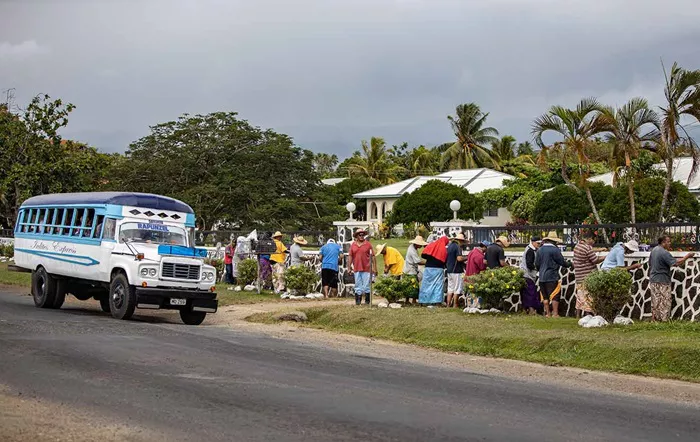July 11, 2024 – In a groundbreaking collaboration, Samoan church ministers from the Ekalesia Faapotopotoga Kerisiano Samoa (EFKS) denominations are stepping up as vital public health advocates in South Auckland’s Pacific community. This initiative, spearheaded by Pacific Public Health (PPH) and supported by National Pacific Senior Advisor for Protection, Priscilla Toitua, aims to leverage the influential roles of church leaders to tackle significant healthcare challenges.
Reverend Elder Victor Pouesi from EFKS Magele I Sasa’e I Puaseisei, a prominent advocate for his community, emphasized the crucial role of Faifeaus (church ministers) in public health. “The church serves as a vital information hub, and the Faifeaus are highly effective agents. They are not just spiritual leaders; they are dedicated public servants who diligently care for their people,” Rev Pouesi said.
More than 40 EFKS Faifeaus are collaborating with PPH under the ‘Project Faith (EFKS PUASEISEI)’ initiative. This partnership aims to utilize the trusted positions of church ministers to deliver timely and well-informed healthcare information to their communities. The focus areas include protection, prevention, promotion, and the introduction of the new Pacific Emergency Response Plan.
One of the primary goals of this initiative is to address the barriers to healthcare that many in the Pacific community face, such as language barriers, social isolation, and financial constraints. By working closely with church leaders, PPH aims to ensure that these obstacles are mitigated, providing easier access to necessary health services.
Toitua highlighted the importance of understanding the distinctions between public health, Pacific health, and Pacific public health. “By working closely with church leaders, we can ensure that these distinctions are understood and that our communities receive the care they need,” she said.
New Zealand is home to more than 40 Pacific ethnic groups, each with its own culture, language, and history. Common health issues in these communities include high rates of diabetes, gout, heart disease, youth mental health issues, skin infections, and obesity. During the COVID-19 pandemic, Pacific churches became central hubs for health information, playing a crucial role in community health promotion.
Api Poutasi, Director of Pacific Public Health, noted the significant impact of working with churches. “Our church is essential to our culture and our lives, and it has had a positive impact in the past. It’s a good information-sharing space where we can talk about all aspects of health,” Poutasi said.
The initiative has garnered support from various community leaders, including former Principal of Malua Theological College Ma’afala Limā, who now serves as a church minister for Otara EFKS. Reflecting on his experiences in Samoa and New Zealand, Limā expressed optimism about the initiative’s potential. “I believe this is the way to be because, in Samoa, there are hardly any programs like this close to the church,” he said. Limā highlighted the importance of integrating local congregations into public health efforts, noting that such discussions are common at the annual Malua Conference in Samoa.
Plans are already underway for similar collaborations in other regions and within the arts and sporting communities, demonstrating the broad potential of this community-based approach to public health.
Related topics:
- WHO Trains 3,455 Community Leaders and Health Workers on Event-Based Surveillance
- Missile Attack on Okhmatdyt Children’s Hospital in Kyiv
- Zimbabwe’s Friendship Bench Initiative Goes Global, Inspiring Mental Health Support


